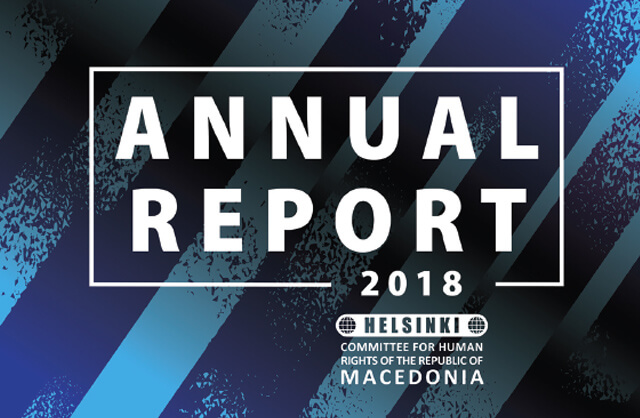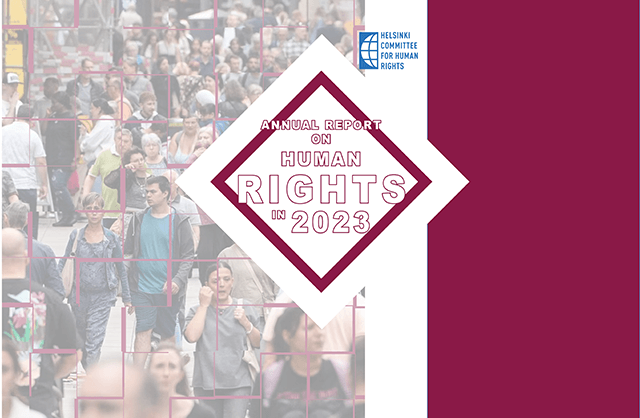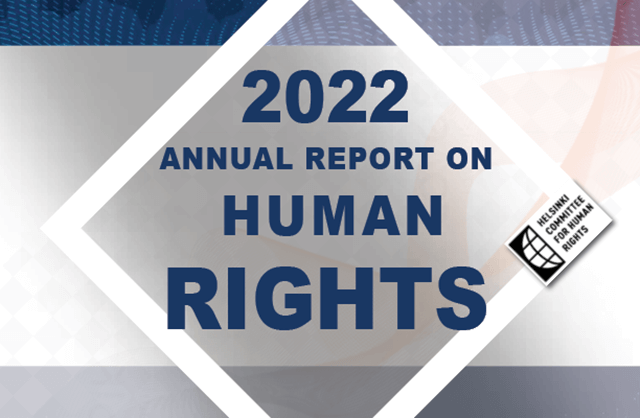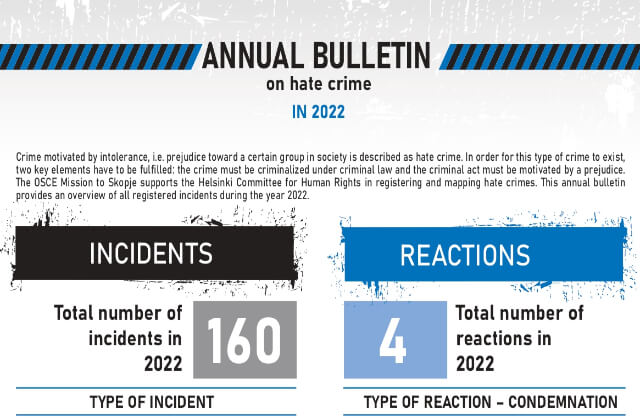Annual report on human rights in 2018
May 10, 2019

Despite the positive shifts, political events prevailed over the reform process once again in 2018. The failed referendum, which succeeded the signing of the Prespa Agreement and the efforts towards creating a majority that would support its adoption by the Assembly, resulted with the controversial Law on Pardons concerning the participants in the Bloody Thursday.
Politics interfering in the judiciary crudely violated the principles of equality before the law and the rule of law. Institutions failed to prevent the escape of the former Prime Minister Nikola Gruevski from the country, with no responsibility whatsoever assumed by anyone regarding the case.
These events, accompanied by the non-transparent adoption of several criminal laws, tarnished the collaboration that civil society organizations (CSOs) managed to establish with the Government. Although CSOs inclusion in the adoption of certain laws was satis-factory, and the Blueprint Group for Judicial Reforms actively participated in the entire reform process, still, partial and politically motivated interventions in crucial laws trespassed on the legal certainty of the citizens and damaged the projected reform goals. The status of the Special Public Prosecutor’s Office also fell in the domain of calculations between the political parties, despite the fact that any postponement might compromise the ongoing proceedings.
It is inevitable to mention the political bargaining among the parties regarding the Law on Protection against Discrimination, the adoption of which was prolonged for months, accompanied by media spins and controversial statements of high-level political representatives.
The entire atmosphere in the country during the reporting period encouraged hate speech in the media space, and more alarmingly, the number of registered hate crimes doubled in comparison to last year. Even though such crimes are typically mostly ethnically based, hate against the LGBTI community, migrants, women etc. were also largely present. The police, courts and public prosecutor’s office remained ignorant and ineffective in the resolution of such cases. Sensitization as a tool is also missing in cases of gender-based violence, where the competent often fail to act on behalf of the victims and their protection.
In addition to the separate review of the situation with gender equality, hate speech and hate crimes, discrimination and human rights of vulnerable groups and LGBTI community, the report also covers the situation with labour rights, with a focus on the rights of textile workers. The report also includes specific court proceedings as part of the Committee’s regular court monitoring in 2018, with an overview of closed institutions in the country. Bearing in mind that offering free legal aid and locating all irregularities in the current Law on Free Legal Aid is distinctive for the Helsinki Committee, the report also contains comments on the new Draft-Law on Free Legal Aid.
Along with the situations and events established in 2018, the report also offers relevant recommendations for all fields in which the Committee is actively working. With this we hope to provide clear directions on dealing with the problematic issues and occurrences shaping the general human rights’ situation in the Republic of North Macedonia, and expect that decision makers will consider them in the process of creation of state policies and measures.


